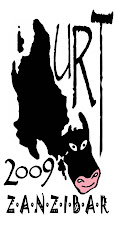We have three more days of sampling in the north of the island before presenting our preliminary findings and outlining our future plans to the Department of Livestock and Development staff on Thursday. My part of the project has been to conduct a face-to-face questionnaire to farmers with the aim of providing a context to our more laboratory based research (and hence my unhealthy affinity for clipboards in all of the photos). I began the construction process months ago whilst on rotations as a total rookie to this secret art by gathering as many relevant papers as possible. Very slowly, with the help and endless patience of my supervisiors at college a 30 question survey began to evolve. By our departure date I was fairly happy with the 50 crisp copies of surveys tucked in my lugguage, which delve into basic farm structure and management, disease awareness and finally more specifically about ECF and the infect and treatment vaccine.
Our whirlwind first day in the field threw up a few immediate challenges to my plan, with our only two interpreters working hard on gaining farmer copliance for blood and tick sampling it became clear that my best efforts at learning Swahili would only get me so far. In addition to the language barrier, farmers on Zanzibar are only availabe to us for sampling for a narrow window in the morning and so we have always been pushing the clock to get all of our samples. Never the less with a few alterations, perseverance and talking over bucking cows I've managed to survey about a third of the farmers we have met.
Inputing the survey data into a spreadsheet has been an evening job, but continues to highlight useful questions that need more work and less useful ones which can be cut. Most of the farmers I have spoken to have had good knowledge of the disease and many can describe recent cases. A growing population and urbanisation are forcing farmers to move to a more intensive way of farming to maximise the productivity of their land. For this to work it is essential that diseases such as ECF are addressed.
It's been a huge learning curve, but I hope we will be able to help the farmers of Zanzibar move forward.
Soz for the dry blog, time for bed ready for another early start!
Andy

No comments:
Post a Comment